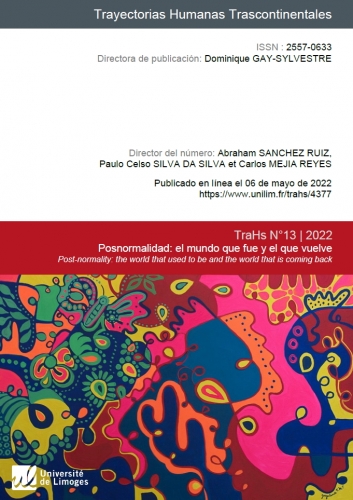La declaratoria de pandemia hecha el día 11 de marzo de 2020 por la Organización Mundial de Salud a causa del brote del virus SARS Cov2 implicó definir una serie de recomendaciones a los países para intentar mitigar el nivel de contagios sin control fronterizo. Las medidas a tomar se definieron como distanciamiento social, uso de mascarillas, evitar contacto físico entre personas, confinamiento, cierre total de actividades de cualquier otra índole que impliquen conglomeraciones en espacios cerrados y más.
La transformación súbita del orden de cosas, entonces, implicó mirar el fenómeno de la Covid19 desde una lectura sociológica y antropológica para analizar las nuevas formas de ajuste y adaptación de las relaciones sociales, así como del total de prácticas colectivas en cada contexto. Obras como “Sopa de Wuhan”, “La cruel pedagogía del virus” y algunos otros análisis agudos además de profundos publicados en esa coyuntura aportaron una serie de claves para dar cuenta de las transformaciones y crisis de la “normalidad”.
Ahora, tras más de año y medio de fluctuantes oleadas de recuperación y encierros, retomamos las interrogantes que otras obras inspiran. Por ejemplo, el libro “Posnormales” de Esteban Rodríguez y otrxs que proponen reflexiones legítimas sobre escenarios post cuarentena. También, la obra de Miguel Wiñazki “La posnormalidad: Filosofía y esperanza del fin del mundo” ofrece reflexiones que incentivan a preguntarse qué sigue del mundo tras la nueva normalidad.
Esta postura fue retomada por instituciones como la UNESCO, la OIT y algunos Organismos Internacionales para los Derechos Humanos con el objetivo de visibilizar las nuevas condiciones favorables, así como nuevos riesgos, del contexto de la crisis post-COVID19. La característica distintiva de esta mirada plantea la imposibilidad de retornar a un pasado inmediato previo a la crisis. Ya sea por la detonación de nuevos riesgos, la agudización de viejos conflictos y la irrupción de nuevas oportunidades, existe un consenso más o menos estructurado de nuevos escenarios que exigen ser discutidos.
En este número de la revista TraHs nos hacemos las mismas preguntas en vísperas hipotéticas de organización social definitiva pos-pandemia. Sin embargo, centramos la atención en tres escenarios: Derechos Humanos, Empleo y Territorios.
